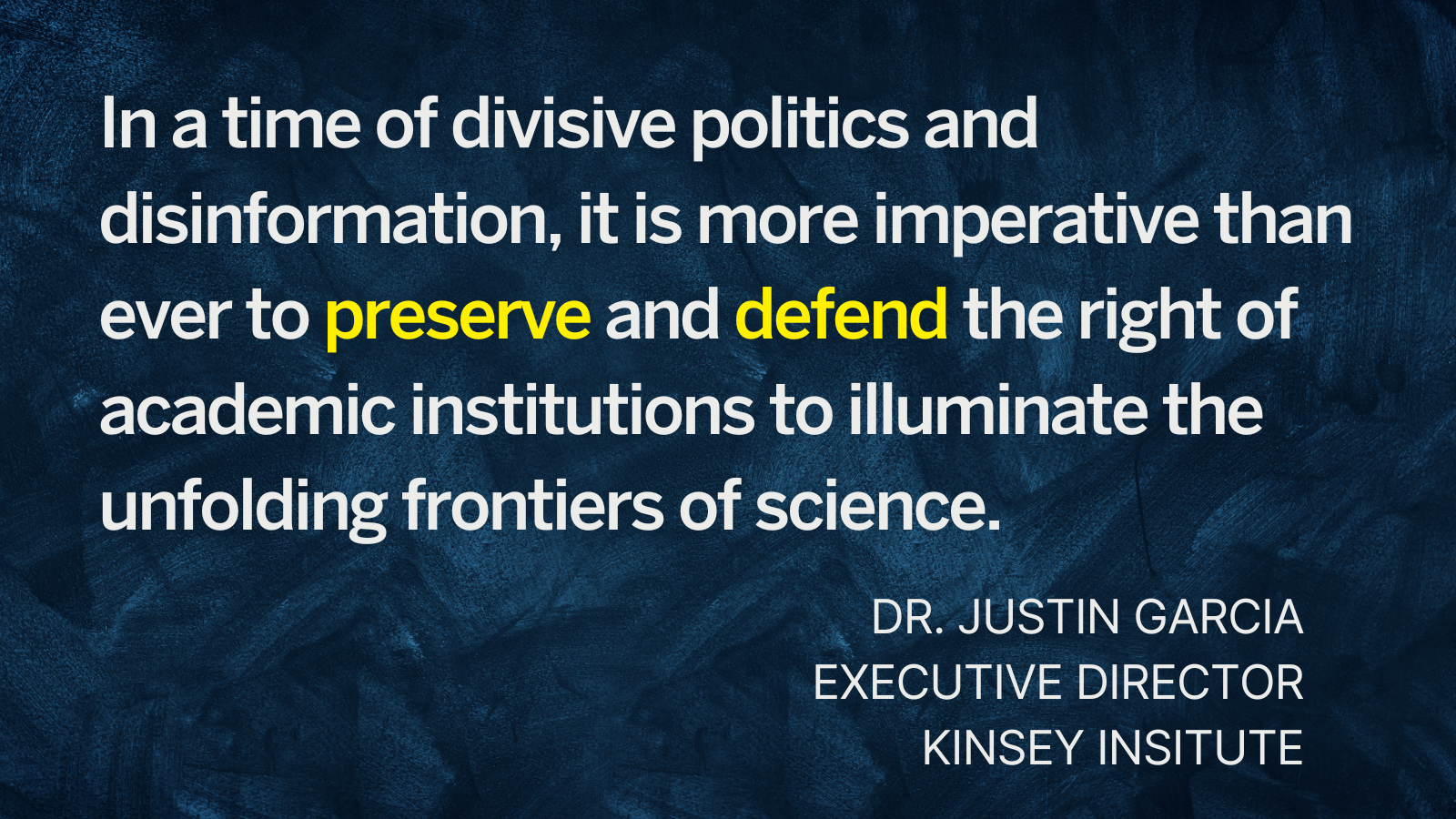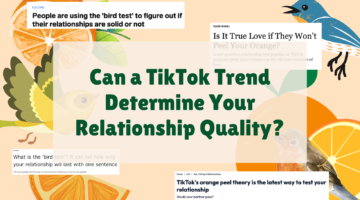Five Reasons to Support the Kinsey Institute and Defend Sex Research
May 24, 2023 by Emily Mendelson
“We are the recorders and reporters of facts—not the judges of the behaviors we describe.”
– Alfred Kinsey
Founded in 1947 at Indiana University, the Kinsey Institute is the premier institute for scientific research on sex, gender, and reproduction in the world. For over 75 years, the Kinsey Institute has conducted robust scientific inquiry aimed at increasing understanding of human sexuality and sexual diversity.
Researchers at the Kinsey Institute are experts within a wide range of disciplines, including neuroscience, psychology, communication, applied health science, and history, to name a few.
Recently, lawmakers in Indiana passed a bill that explicitly prevents public funds from being used to support the Kinsey Institute. This move is the latest in a series of culture wars that use the Kinsey Institute as a way to threaten academic research about the diversity of human experiences. This law aims to fundamentally limit “the right to even ask questions” about sex and sexuality, according to Dr. Justin Garcia, the Executive Director of the Kinsey Institute. As Jeremy Young says, “It is horrifying that the Indiana legislature would ignore university experts and defund a research institute on the basis of debunked conspiracy theories.”
There are many ways you can defend sex research and support the Kinsey Institute. Although the institute’s contributions are many and varied, here are five important reasons to do so today.
1 – Development of innovative condom technology to improve rates of condom use
Using a condom during sexual activity helps prevent the transmission of STIs, such as HIV, and can help prevent unintended pregnancy. However, if a condom is used incorrectly, it will protect against neither STIs nor pregnancy. The Kinsey Institute’s Condom Use Research Team (KI-CURT) has helped us to better understand common barriers to condom use, and has motivated the development of the O-Ring condom. The O-Ring condom has been approved by the FDA and is intentionally designed to decrease instances of condom misuse.
2 – Intervention strategies to prevent intimate partner violence and support survivors
Intimate partner violence (IPV) has long-term consequences for victims. As part of the Relationship Dynamics and Social Life (RDSL) study, researchers at the Kinsey Institute have studied the factors that lead to IPV amongst adolescents and young adults. Their findings inform intervention programs that aim to mitigate the prevalence of IPV, as well as treatment strategies for victims of IPV.
3 – Access to over 2,000 years of archival research on human sexuality
The Kinsey Institute Collections house film and print materials, fine art, data, research, artifacts, and archives that span over 2,000 years of history from six continents. Without these collections, thousands upon thousands of items that detail the history of human sexuality and scientific inquiry about sex and sexuality would be lost. The Institute preserves and maintains these materials for sex researchers to utilize in order to further scientific progress.
4 – Understanding the effects of COVID-19 on our sexual and romantic relationships
The COVID-19 pandemic fundamentally transformed interpersonal relationship dynamics, including friendships, marriages, and sexual partnerships. Consequently, multiple research teams within the Kinsey Institute, such as KI-CURT and the Kinsey Institute Traumatic Stress Research Consortium (KI-TSRC) have conducted studies investigating the effects of COVID-19 on our relationships, mental and emotional well-being, and sexual behaviors. Among many key findings is that exploring new sexual activities may be a way to improve one’s sex life despite drastic changes to daily life as a result of the pandemic.
5 – Education about all-things related to sex and sexuality for everyday life
Researchers at the Kinsey Institute are experts in topics that many people are curious about; however, obtaining useful and scientifically-based information about sex can be challenging. The Institute’s website helps to fill in knowledge gaps by including information that ranges from facts about hormones to information about sexual orientation and gender identity. Access to this information is vital so that the public can be informed about medically-accurate sexual education for years to come—something that lawmakers in many US states are actively seeking to restrict or eradicate.
These are just five contributions the Kinsey Institute has made not only to research, but to our overall health and our ability to create fulfilling sexual and romantic relationships with others. Be sure to read what scientists have to say about their work within Kinsey and visit the Kinsey Institute website to find out how you can #SupportKinsey and #DefendSexResearch. To start, you can share this article to your network and help correct false information you see online.
You can actively support sex science by by visiting kinseyinstitute.org to make a donation. You can also show your support by following the Kinsey Institute on Facebook, Twitter, and Instagram.
Want to learn more about Sex and Psychology? Click here for more from the blog or here to listen to the podcast.
Image Source: The Kinsey Institute

Dr. Justin Lehmiller
Founder & Owner of Sex and PsychologyDr. Justin Lehmiller is a social psychologist and Research Fellow at The Kinsey Institute. He runs the Sex and Psychology blog and podcast and is author of the popular book Tell Me What You Want. Dr. Lehmiller is an award-winning educator, and a prolific researcher who has published more than 50 academic works.
Read full bio >


